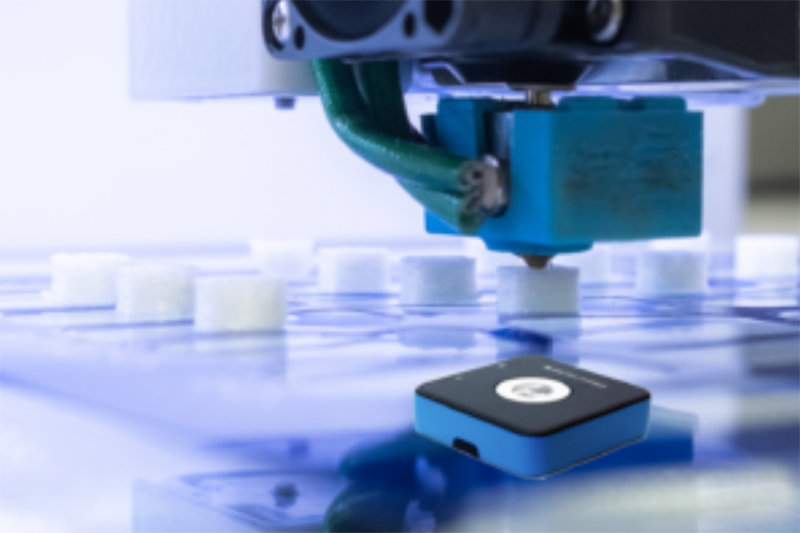3D-printed doses can deliver trusted, consistent medications – customised to accommodate allergies, children’s size and taste preferences, polypills for easier drug management, and custom doses, sizes, shapes, textures and flavours. The first 3D-printed drugs on the market have paved the way for a new generation of precision medications. Custom doses are clearly an important market but offering a mix-your-own bubble-gum-flavoured horse- shaped 3.4mg dose is hardly the next step. Neither regulators nor pharmaceutical manufacturers want uncontrolled in-pharmacy printing. So how do we balance options with controls?
FabRx is partnering with InfraTrac, a specialist in pharmaceutical anti-counterfeiting, to develop the next generation of verification technologies for in-pharmacy 3D printed medicines. InfraTrac, founded in 2006 to provide in-dose anti-counterfeiting for conventionally manufactured tablets and capsules, has more recently brought spectroscopic fingerprinting to additive manufacturing. InfraTrac’s chemical tagging has been applied to polymers and metals, in particular for aerospace parts. These industries share a focus on quality management for critical products in regulated industries, a preference for non- destructive testing, and a risk of counterfeits.
FabRx’s collaboration with InfraTrac incorporates advanced quality management using spectroscopy. Focused, non-destructive evaluation is crucial here. Spectroscopic modelling makes it possible to allow limited customisation while controlling doses, eliminating dispensing errors, and avoiding supply chain problems such as counterfeits. Advances in spectroscopy provide portable high-quality, easy-to-use instruments at prices that make sense in neighbourhood pharmacies.
The collaboration involves the use of real-time scanning using portable spectrometers that are incorporated into FabRx’s pharmaceutical 3D printer, M3DIMAKER. This real-time scanning will not only allow the system to detect any errors in the printing process, allowing timely rectification of the issue and reduced wastage and downtime, but will also verify the final formulations contain the correct ingredients at the correct dosages. The use of portable spectrometers combined with real-time scanning using quality management software will allow the system to achieve a satisfactory level of confidence that the printed dosage form matches the initial design.

Schematic of how a portable spectrometer can be incorporated into the M3DIMAKER
The goal is to develop a reliable quality monitoring system that allows a variable, but not an uncontrolled 3D printing process. As such, pharmacists will be able to prepare the dose prescribed to the patient, make some limited alterations to the formulation such as flavour, texture, colour etc, and then the printer will automatically print and verify the dosage forms match the initial design. This enhanced level of control will allow pharmacists to experience the significant advantage of 3D personalised dosage forms over traditional mass manufactured dosage forms whilst ensuring a high level of accuracy and reliability in the printing process which is necessary for regulatory approval.
